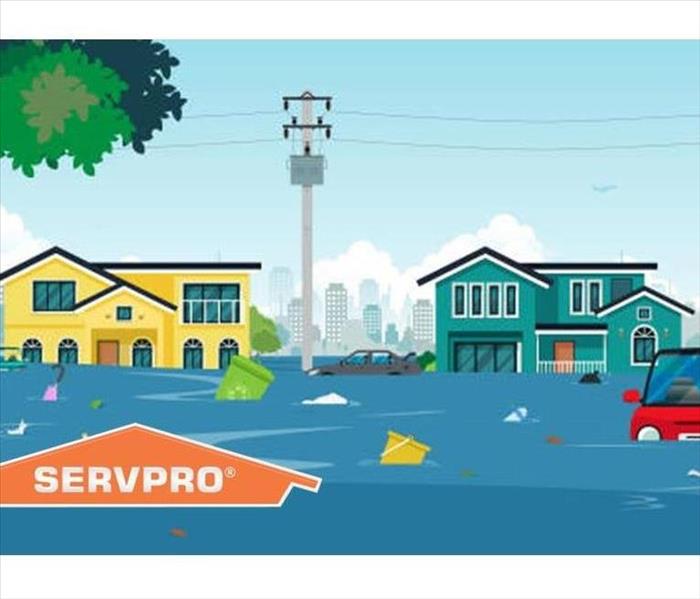Understanding Flooding in Northwest Florida
4/14/2021 (Permalink)
Flooding is defined as “an overflowing of water onto land that is normally dry.” Flooding can be caused by a multitude of different occurrences; the two experienced most frequently in the Northwest Florida being tropical systems and heavy thunderstorms. Floods are the most common and widespread of all weather-related natural disasters, therefore it is important to understand the different types of flooding possible in our area, and to prepare ahead of time in case of such an event.
River Flood – a river flood occurs when water rises over the top of a riverbank. This can immediately affect structures located near the river, and if water levels continue to rise, affect homes and businesses downstream.
Coastal Flood – a coastal flood occurs when land areas along the coast are inundated with rising waters. A combination of factors, including tidal patterns, rainfall, and land elevation can all play a role in coastal flooding issues.
Storm Surge – Storm surge is a variation of coastal flooding in which the wind, atmospheric pressure, and waves of a severe storm greatly increase the water level in coastal areas. Highly common during hurricanes, storm surge can occur very quickly, and pose serious property and safety concerns.
Flash Flood – a flash flood is usually caused by heavy or excessive rainfall in a short period of time. Flash floods can occur with very little warning and be extremely dangerous. Clogged draining systems and standing debris can contribute to the likelihood of flash flooding occurrences.
Understanding different types of flooding, those that are most likely to affect your home or business, and how to prepare, can help to protect both your and your property in the event of a flooding disaster. In the unfortunate event that flood waters have caused you to experience property damage, know that SERVPRO of Northwest Escambia County has the training, experience, and equipment to help. For more information about our services, give us a call at 850-466-3089.
Source: https://www.nssl.noaa.gov/education/svrwx101/floods/types/





 24/7 Emergency Service
24/7 Emergency Service
